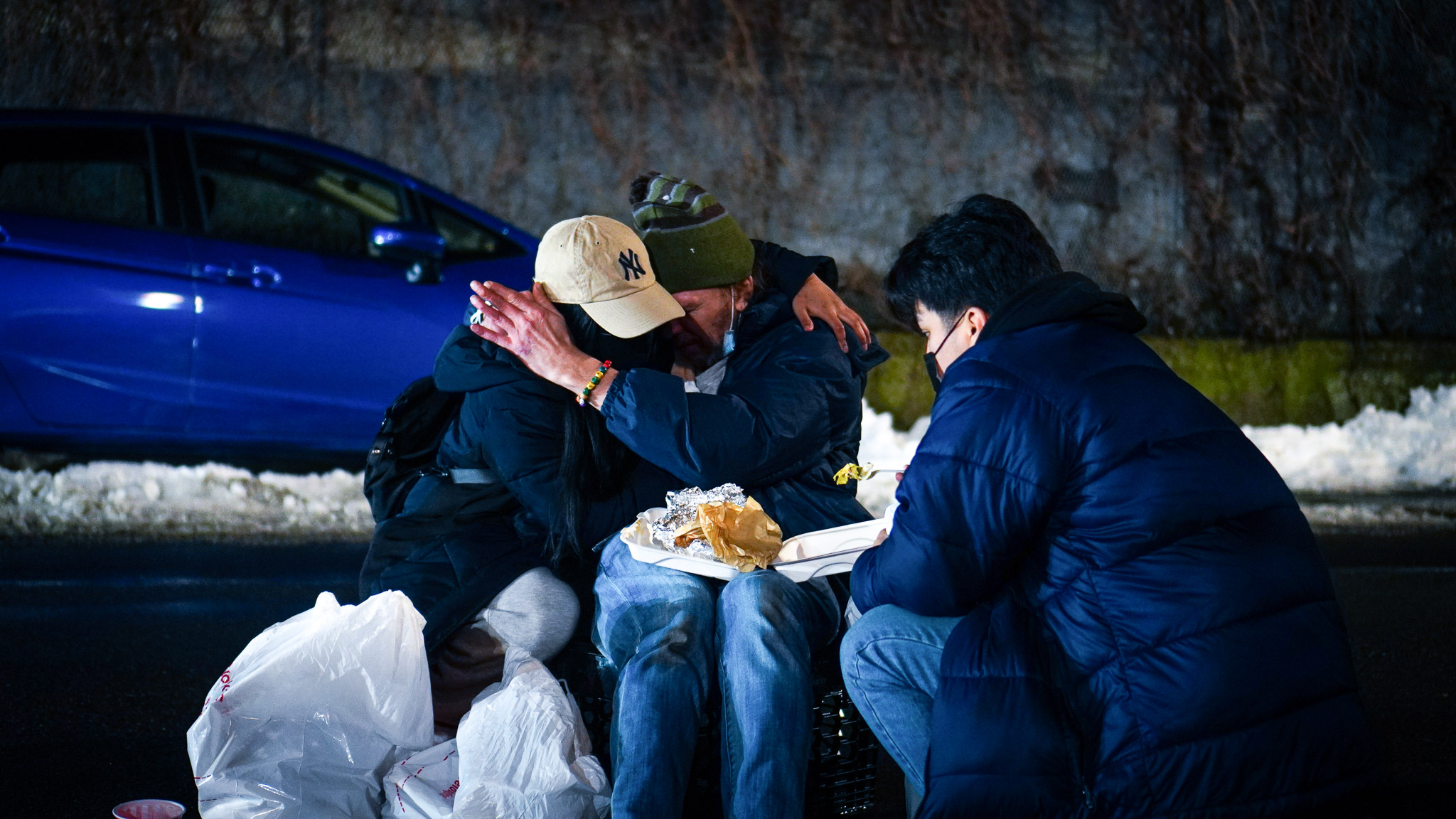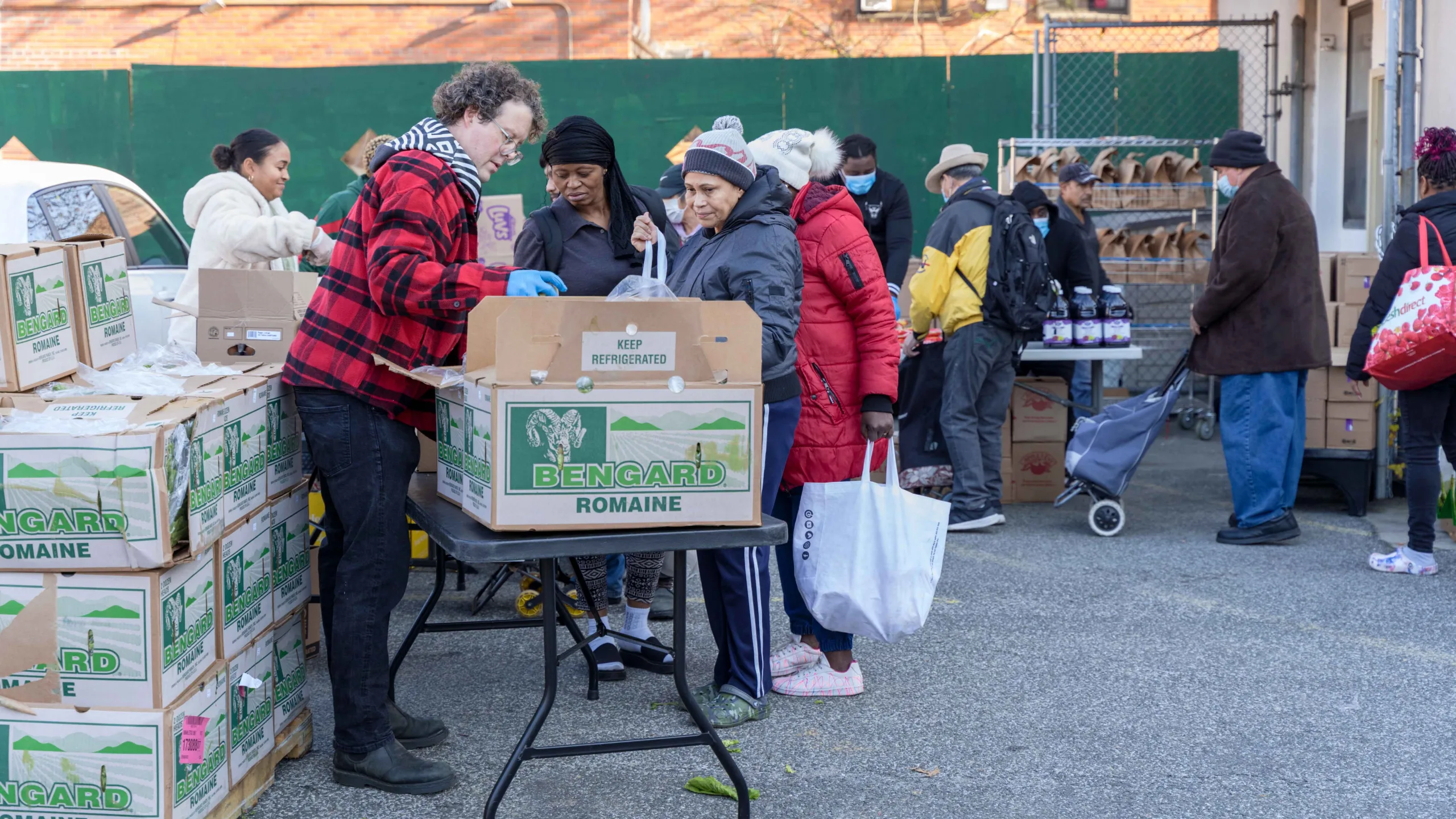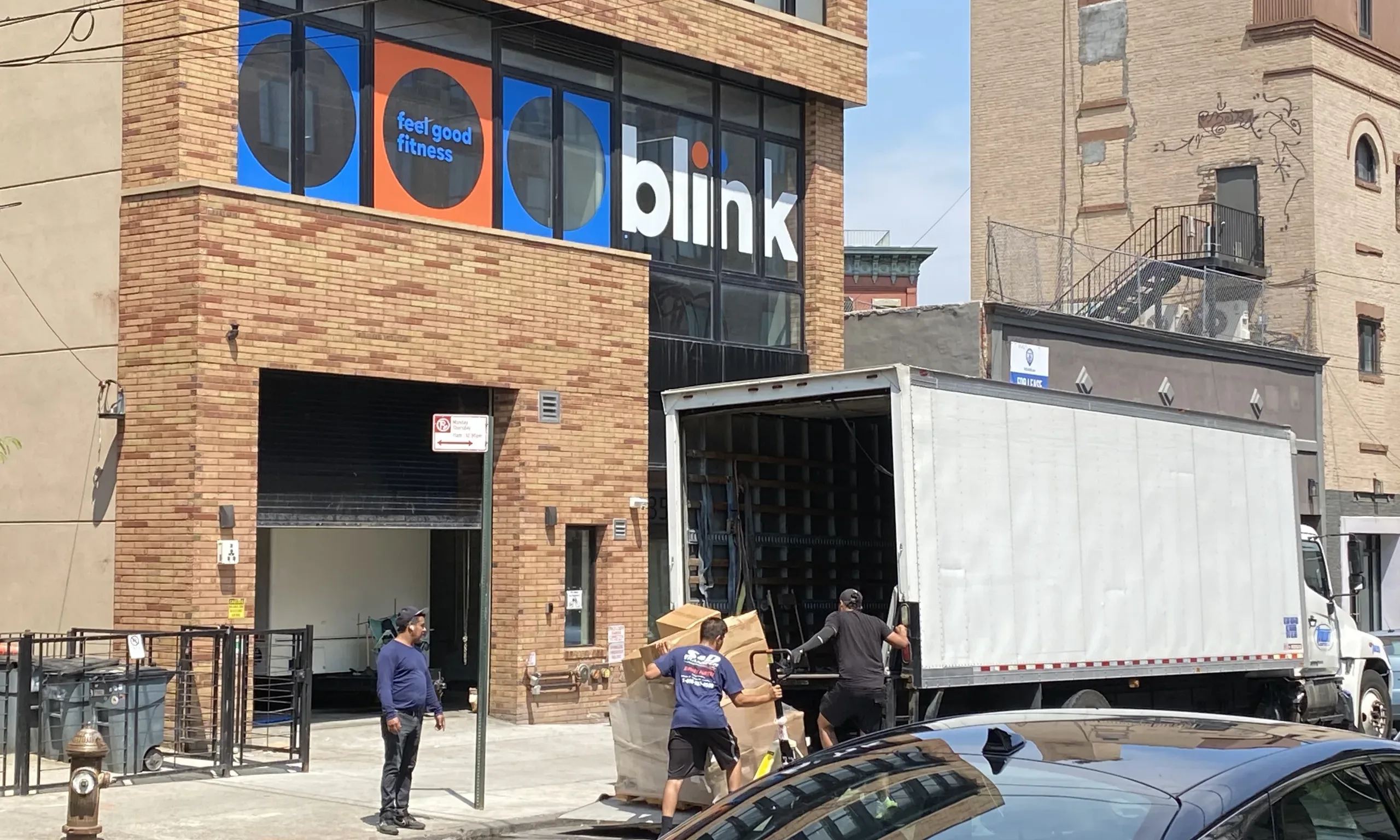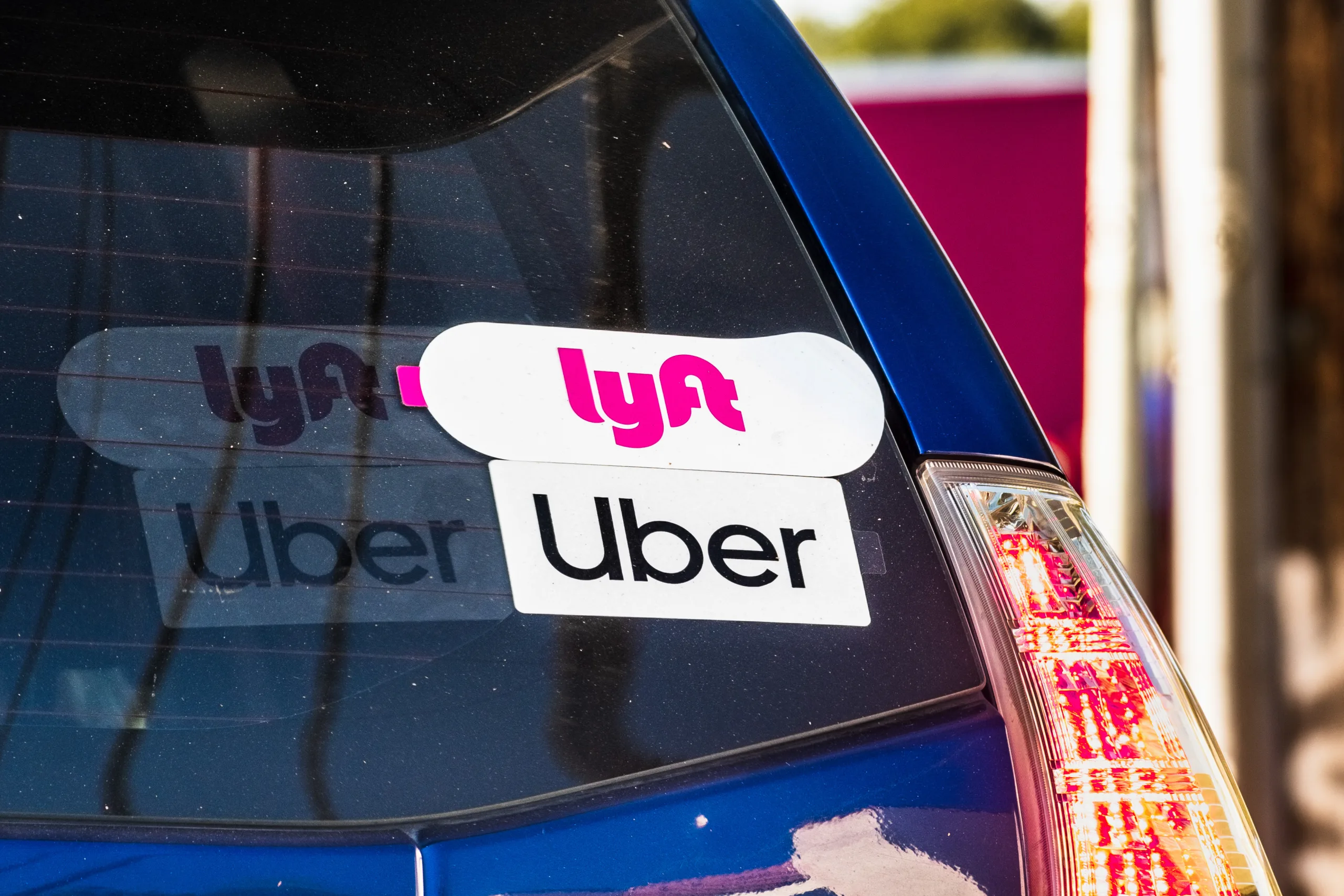Eduardo is surrounded by a pile of cans and the tent where he sleeps. He worked in a restaurant for five years before losing his job during the COVID-19 pandemic. “I still had money so I was able to last about two months in my apartment. Then the money finished,” Eduardo’s voice trailed off as the sun shone in his face, “I started living here and there.” As a homeless undocumented immigrant that originally came from Mexico, Eduardo did not receive any government assistance during the pandemic. After he was forced out of the room he was informally renting, he joined an encampment in Queens.
Eduardo, who declined to share his real name, is one of about thirty homeless people living in an encampment in a quiet alley in Elmhurst, Queens that’s dotted with tents. The immigrant neighborhood garnered national headlines when it became the epicenter of the COVID-19 pandemic, with 13 patients dying in one day in its public hospital. A year later, groups of mostly homeless undocumented immigrants have taken refuge in the streets.
Interviews with local advocates and city data indicate that homelessness is rising locally and citywide, as the most marginalized residents struggle to recover from the pandemic. Neighborhoods like Elmhurst, where much of the population is foreign born, were hit the hardest by the pandemic and many people lost their jobs, which has led to an increase in people losing their homes, organizations doing street outreach and advocates say. Yet, the City has responded through increased cleanups or sweeps, aimed to displace homeless individuals from areas where they have set up shelter, which advocates say only increases their suffering.
“The sweeps are traumatizing,” said Raquel Namuche, an organizer with the Ridgewood Tenants Union, which builds power among tenants and homeless residents, “People get upset because their property, the only things they have on their backs, are thrown out in a violent and uncaring way.”
Within a half mile thoroughfare in Elmhurst, the number of sweeps nearly doubled in 2020, according to analysis by Documented, as the number increased from 12 sweeps in 2019 to 23 in 2020 (the data from 2019 ends on 12/11/2019 while the data from 2020 include the entire year). The Safety Net Project, which advocates for safe and secure housing and resources for marginalized communities, obtained this data through a public records request.
“It’s really caused the encampments to become a rarity, but whenever we see a new one, we immediately take it down,” Mayor Bill de Blasio said previously about the sweeps. The recent uptick indicates an increase in street homelessness since the pandemic began.
“The numbers have increased for homelessness and people in need for food [since the pandemic],” said Jeff Kolsch, the director of New Life Food Pantry which supports the poor and marginalized in Elmhurst, “The encampment is basically evidence of that – a year ago that encampment didn’t exist.”
Also read: Here’s What the Top Mayoral Candidates Say They’ll Do for Immigrant New Yorkers
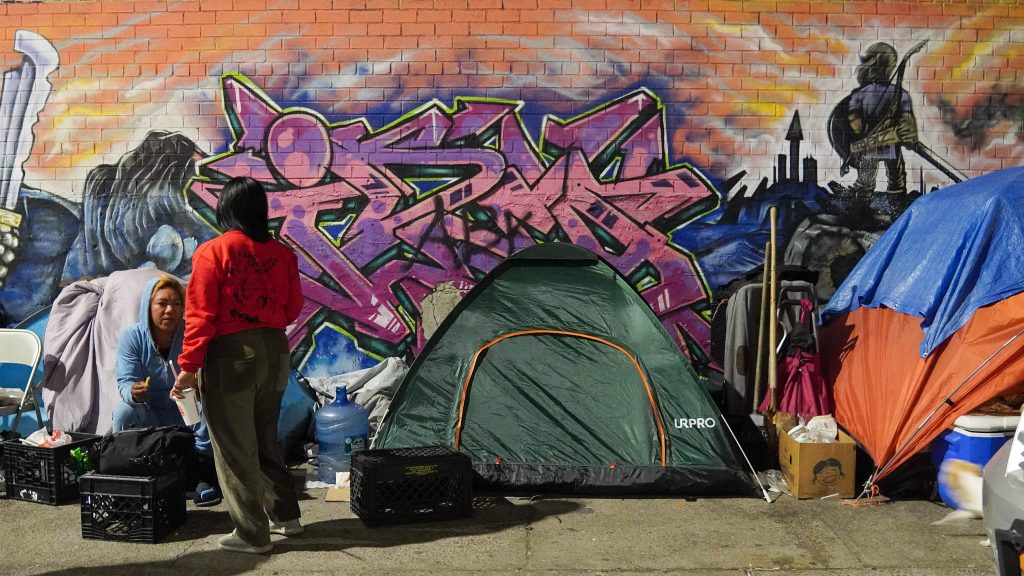
In the city as a whole, sweeps rose 98 percent since March 2, 2020, compared to the same time period in 2019. In Queens, where neighborhoods like Corona and Elmhurst, which have high percentages of foreign born residents, became an epicenter of the pandemic early on, sweeps rose 217 percent. City figures also show that shelter populations have increased from June 2020 compared to June 2019 and from 2019 to (pre-pandemic) 2020, the homeless street population increased by 7%, or 269 individuals.
Alfredo, a homeless undocumented construction worker from Mexico, has lived in the encampment for three months. He was thrown out of his Brooklyn apartment last November. When he lost steady income, he was unable to pay rent for several months, which increased tensions with a roommate who eventually forced him to leave.
It is not illegal to sleep outside, but the Department of Homeless Services can conduct these cleanups when encampments pose a danger which can include obstructing a sidewalk. City officials will post notices in the area indicating the time and date of the upcoming sweep. Police are occasionally present and have been accused of issuing tickets and summonses during sweeps. City officials will seek to connect individuals to the shelter system as their belongings are thrown into garage trucks. Internal policy prohibits officials from offering direct assistance for fears it will encourage individuals to remain on the street. The sweeps have been widely criticized by advocates and city outreach workers for criminalizing homelessness instead of offering more meaningful solutions such as housing options outside of the shelter system.
According to Afredo and Eduardo, the latest sweep took place on March 15, when they managed to relocate their tents just in time so city officials would not discard them. Yessenia Benitez, a licensed clinical social worker, has turned her phone into a hotline for both mental health and material needs of encampment residents and supported them during the sweeps.
Benitez contacted the Department of Sanitation staff who oversaw sweeps in the area and said officials agreed not to discard personal belongings as long as volunteers remained present during the sweeps. “We went from having to buy tents everyday to not having to buy them anymore,” said Benitez. Benitez and another local group, Fundados en Cristo Ministry, continue to help move tents and belongings so city officials can clean the area, but their ability to negotiate these interactions depends on the whims of city employees.
Not all Elmhurst residents have welcomed the encampment. “A lot of people pass by and look down on us, insult us and criticize us, but we’re not in the streets because we like it here,” Alfredo said.
Multiple residents of the encampment said they feared violence and aggression from individuals who they say have stolen their belongings and/or thrown bottles at them. Rachel Baik, executive director of City Mission, an Elmhurst based community organization working with vulnerable groups, said the aggression against people living in the encampments from pedestrians has increased as the pandemic has progressed alleging they have destroyed tents. “They are more noticeable because they’re not working,” Baik said of encampment residents.
Homeless individuals often sleep on the streets in small communities to offset the dangers according to Craigh Hughes with the Safety Net Project. “Often people stay on the streets because the alternative available option – municipal shelter – is also dangerous and sleeping outside is assessed to be safer,” said Hughes.
Transgender women living in the Elmhurst encampment left the shelter system because they feared for their safety, which is a common experience of trans women experiencing homelessness. The city has developed guidelines to better serve trans clients.
Also read: Pro-Bono lawyers and free legal services for homeless undocumented immigrants in New York
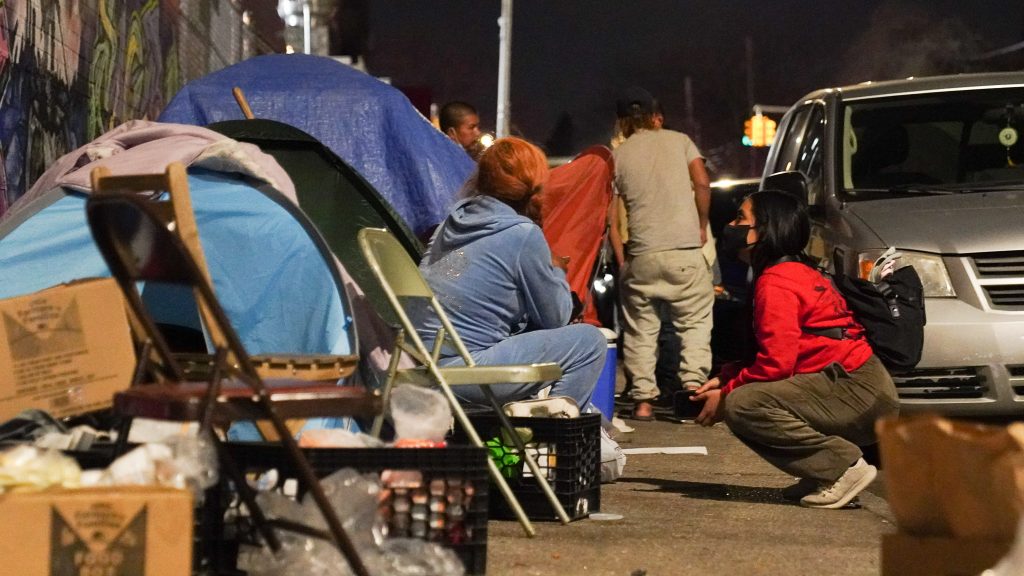
During the pandemic, the Center for Disease Control and Prevention advised cities to allow individuals to remain in encampments if private rooms were not available. Yet, after the pandemic in 2020, New York City nearly doubled the number of cleanups, from 543 to 1,077. Since 2016, the number of cleanups in the city has drastically increased, as have 311 complaints from residents about homeless encampments.
Last year, New York City began offering single-occupancy hotel rooms to those living on the streets to much success as it offered privacy and safety from both the virus and police unlike congregate shelters. Since December 2020, however, and after persistent resident complaints about homeless individuals in hotels, the city established a longer process and strict eligibility criteria based on health issues.
For advocates, it’s clear that the best means to prevent more people to become homeless undocumented immigrants is to protect tenants at risk of losing their apartments. After a year of organizing, New York State has approved the Excluded Workers Fund, which taxes wealthy residents of the state to expand unemployment benefits to undocumented immigrants, sex workers, street vendors and other informal workers through a two-tier program. The state legislature has approved $2.1 billion for the fund which falls short of the $3.5 billion workers demanded, which would have ensured that recipients received the same amount of unemployment benefits as citizens. The budget also includes $2.4 billion in rental assistance for tenants including undocumented tenants. Advocates say these programs will prevent more people from losing housing in New York, which already has the highest rate of homelessness in the country.
“We need this money to support our families, end hunger, and remain in our homes and avoid homelessness,” said Aadit Siwakoti, a member of Desis Rising Up and Moving, a grassroots organization based in Queens, “This bill should have been passed last year since New York is a Democratic state but Cuomo only helps his billionaire friends and never cares about us poor people.”
Also read: These Laundromat Workers Were Fired After Forming a Union. Now They’re Fighting Back
TestPost3
Eduardo and Alfredo should benefit from the fund as homeless undocumented immigrants who lost their jobs due to the pandemic, but they were both robbed of their forms of identification when sleeping on the subway. Replacing lost IDs has become a herculean task with appointments at consular offices and the DMV unavailable until far into the future and IDNYC applications closed.
“In a remarkable misuse of resources, the de Blasio administration has tasked its homeless outreach workers with the functions of policing – displacing homeless people in sweeps, and rubber-stamping the tossing of their belongings – instead of focusing on helping people get desperately needed documentation, like a government ID,” Hughes said.
Absent meaningful government assistance for homeless undocumented immigrants, Alfredo and Eduardo are left to fend for themselves but have found solace in their community. “Out here, we take care of each other. We share everything,” Alfredo said, “there were 3 of us sleeping cramped inside that tent but they never left me out on the street to fend for myself.”
Also read: Immigrant Delivery Workers Organize To Fight Rampant E-Bike Theft
